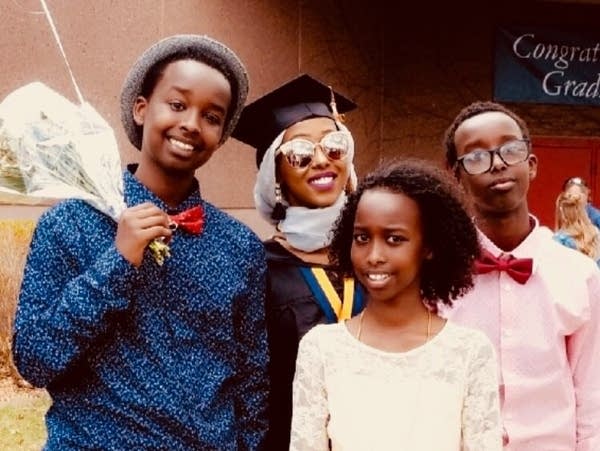Paying debts: Months after his COVID-19 death, woman sorts out what her father left behind

Mohamed Omer's daughter, Haweya Farah, spent weeks in quarantine after her father died. Since then, she's focused on paying off his debts. She’s pictured here before the COVID-19 pandemic, with her three children, Abdirahman, Abdullahi and Amina.
Courtesy of Haweya Farah
Go Deeper.
Create an account or log in to save stories.
Like this?
Thanks for liking this story! We have added it to a list of your favorite stories.


